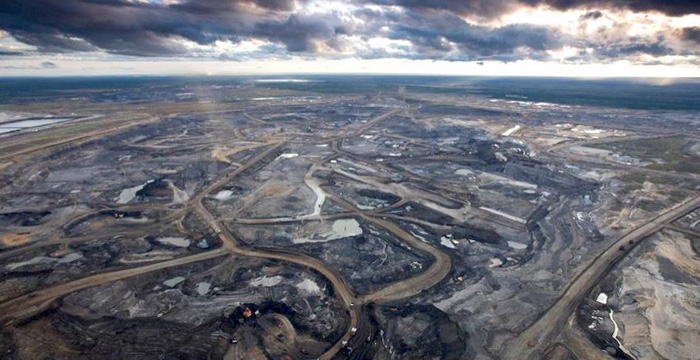Rethinking Lifestyle
The Environmentalist’s Dilemma

The environmentalist’s dilemma is a slowing of the economy coinciding with a drop in the price of oil. For people concerned about the amount of carbon dioxide released into the atmosphere by human activity, a slowdown of the economy is good news. The COVID-19 coronavirus, along with other factors has slowed the economy significantly. (So much so that the Bank of Canada dropped its interest rate to 1.25%. An airlines industry group says that the lost revenues due to the coronavirus will be in the range of $113 billion.) A lot less carbon is being emitted into the atmosphere.
The dilemma is, however, that as the economy slows, the demand for oil goes down causing the price of oil to drop. However the present oil price is not affected by the demand for oil. It is also affected by the price war between Russian and Saudi Arabia. The price of a barrel of oil dropped from a relatively low price of $50 a barrel on Friday, March 6, 2020 to a very low $30 a barrel on Monday, March 9, 2020. As of March 30, the price of Alberta oil sands oil is less than $4 a barrel. This drop has several consequences. One is that it makes new development of oil resources not affordable and could put some existing oil industries go out of business. Furthermore unfortunately, low oil prices also reduce the incentive to turn to alternative renewable energy sources. Not only will renewable energy not be competitive to oil, businesses will not be able to afford a switch to renewable energy in a slow economy of reduced profits.
The COVID-19 crisis however, is an important opportunity to re-invent the economy. It is reported that this sudden change in economic activity has cleared up the skies above Beijing and cleared the canals of Venice, both wonderful developments. I am hoping that in this crisis people will see more clearly that after food and shelter, the other important important things in life are free and abundant – time for family, time for creativity and time for building relationships.
This crisis is an opportunity to look at the concept of guaranteed minimum income. Ken Boessenkool, a former advisor to Stephen Harper suggests that for the current crisis, a basic income for all Canadians, administered through the existing income tax system would be more efficient and beneficial than the ad hoc programs currently being developed. The currently offered assistance will require everyone to fill out applications and then wait, who knows how long, for payment.
These crisis payments are a necessary, short-term solutions but what about the new economy after COVID-19?
In terms of energy, there are opportunities to transition to and develop renewable energy sources. There could be many jobs in cleaning up the old oil wells. There are many opportunities in redirecting the building and construction industry to retrofit existing buildings to make them more energy efficient. In the transportation sector there are many opportunities to re-imagine better rail and less trucks, more regional sources of goods, more infrastructure for electrifying passenger transport. In agriculture we could turn the industry from being part of the problem as it currently is, to be part of the solution as it could be. We have an opportunity to redo the tax system to replace income tax with a resource and consumption tax.
We have an opportunity to finally bury classical economic theory which was designed for an empty world and replace it with a systems economic theory that has no externalities. Classical economics assumes there will be substitutes after an input runs out and that the suitable substitute will be determined by the price of these substitutes. Unfortunately in a full world getting bigger nets for catching fish will not get us more fish because it is not the technology that is lacking but the resource itself. Systems economics on the other hand looks at the big picture. Where are the resources coming from? Are they renewable? How fast can we use them without using them up? How much energy is required to produce the item in question and what will happen to the item once its life is over? Often the market cannot accommodate all of these factors. When that happens, appropriate taxes and quotas must be put in place to modify our behaviour.
COVID-19 is showing us what can be achieved when drastic action is needed and drastic action is applied to a problem.




